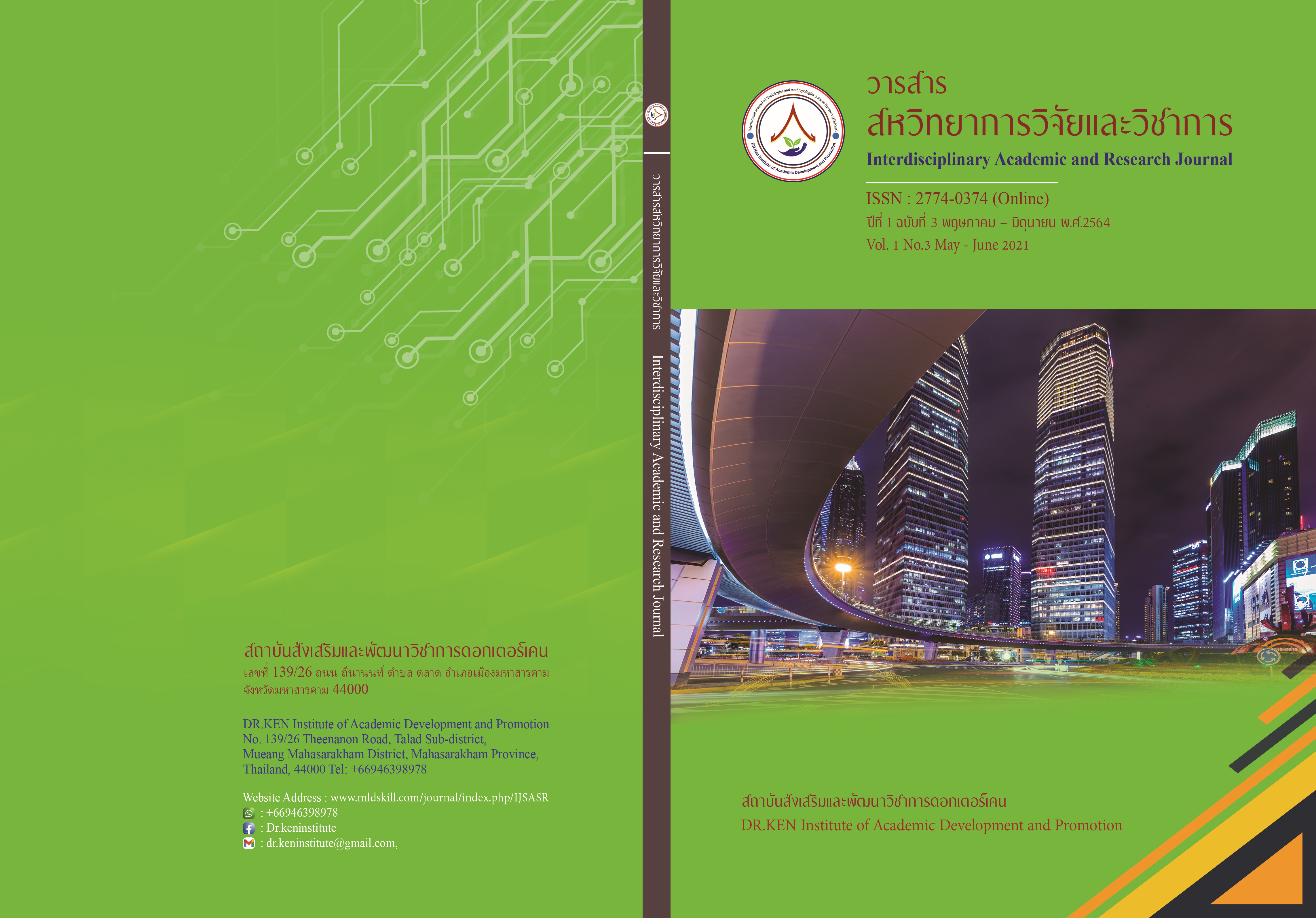Podcast in Thailand
DOI:
https://doi.org/10.14456/iarj.2021.14Keywords:
Podcast in Thailand, Podcast, PodcasterAbstract
The origin of podcasts in Thailand comes from podcast listeners interested in becoming a hobby of podcasts. The content of the podcast depends on the interests of the host. Podcast Turning Points in Thailand from hobbies to listings to consumers' reach. Start with online news outlets by improving the quality of podcast lists. The program is invested in recording equipment and editing professional programs, classified into a variety of podcasts and specific podcasts, revenue from listeners through the sale of event tickets. This includes advertising revenue and podcast listings to support brands. There can't be a mainstream income from doing podcasts alone. Podcaster Currently, there are two categories: individual and group podcasts that host podcasts as hobbies, or podcasts with their podcast lists, and podcasts that make up the company and corporate names, or contractor podcasts as podcasts that are organized based on the content they want. Podcast Growth in Thailand Nowadays, the number of podcast listeners is increasing, but it is not exponentially increasing, while podcast hosts are increasing, and organizations that host podcasts are also increasing, but corporate podcasts are rarely publicized. The number of people listening to the service is low. And what podcasts in Thailand should develop is to create content that is interesting, compelling, and unique so that podcasts in Thailand can grow and be sustainable.
References
ชนินทร เพ็ญสูตร. (2561). พอดแคสต์ สื่อทางเลือกใหม่: กรณีศึกษาเปรียบเทียบระหวางสหรัฐอเมริกาและไทย. วารสารวิชาการ กสทช. (3), 272-289.
นับทอง ทองใบ. (2562). หนังสือประมวลบทความ (Proceedings) การประชุมวิชาการระดับชาติและนานาชาติ มหาวิทยาลัยศรีปทุม ครั้งที่ 14 ประจำปี 2562 เรื่อง วิจัยและนวัตกรรมเพื่อประเทศไทย 4.0. มหาวิทยาลัยศรีปทุม : โรงพิมพ์ มหาวิทยาลัยศรีปทุม.
ปวรรัตน์ ระเวง. (2563). การวิเคราะห์เนื้อหาพ็อดคาสท์ : บริการโอทีทีในกิจการกระจายเสียงของประเทศไทย. วารสารวิชาการ กสทช. (5), 213-231.
วรัญญา ติโลกะวิชัย และ จิตติมา คงรัตนประเสริฐ. (2564). การใช้พอดแคสต์เพื่อส่งเสริมการพัฒนาทักษะพนักงานในอุตสาหกรรมโลจิสติกส์ ช่วงสถานการณ์ Covid-19. วารสารการบัญชีและการจัดการ มหาวิทยาลัยมหาสารคาม, 13 (2), 26-41.
อาลี ปรียากร และ กุลทิพย์ ศาสตระรุจิ. (2561). แนวทางการผลิตรายการกระจายเสียงผ่านรูปแบบรายการพอดแคสต์ในประเทศไทย. วารสารนิเทศศาสตร์, 36 (3), 47-58.
Campbell, G. (2005). There’s something in the air: Podcasting in education. EDUCAUSE Review, 40 (6), 32–47.
Edison Research and Triton Digital. (2017). THE PODCAST CONSUMER 2017 #PodCon17. (Online). สืบค้นเมื่อ 19 พฤษภาคม 2564 จาก https://bit.ly/2rkxgEI
Hammersley, B. (2004). Audible revolution. (Online). สืบค้นเมื่อ 1 มิถุนายน 2564 https://bit.ly/2 CKgCqS
Rainsbury, J. W., & McDonnell, S. M. (2006). Podcasts: an educational revolution in the making?. Journal of the Royal Society of Medicine, 99 (9), 481-482.
The Nielson Company. (2017). Nielsen Podcast Insights: A Marketer’s Guide to Podcasting (Q3 2017). [Online] สืบค้นเมื่อวันที่ 19 พฤษภาคม 2564 จาก https://www.nielsen.com/us/en/insights/report /2017/nielsen-podcast-insights-q3-2017/#.
Downloads
Published
How to Cite
Issue
Section
License
Copyright (c) 2021 Interdisciplinary Academic and Research Journal ISSN 2774-0373 (Online)

This work is licensed under a Creative Commons Attribution-NonCommercial-NoDerivatives 4.0 International License.
Copyright on any article in the Interdisciplinary Academic and Research Journal is retained by the author(s) under the under the Creative Commons Attribution-NonCommercial-NoDerivatives 4.0 International License. Permission to use text, content, images, etc. of publication. Any user to read, download, copy, distribute, print, search, or link to the full texts of articles, crawl them for indexing, pass them as data to software, or use them for any other lawful purpose. But do not use it for commercial use or with the intent to benefit any business.
















.png)


